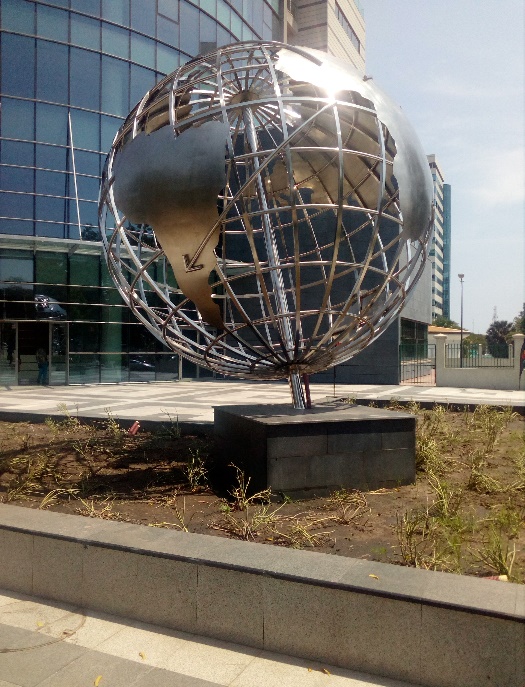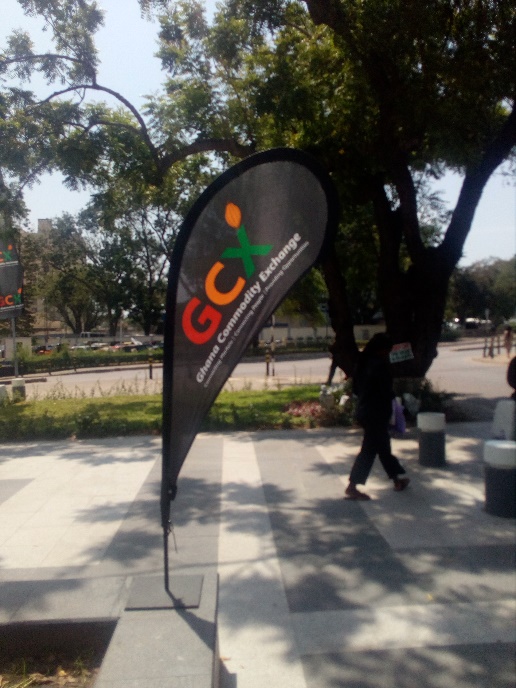On Tuesday 6th November 2018, the President of Ghana, Nana Akufo-Addo, opened the Ghana Commodity Exchange (GCX), a platform for buying and selling listed agricultural commodities. It is the first of its kind in West Africa, and one of three on the African continent, and is meant to make Ghana the agricultural hub of the sub region. The Exchange has started with spot trading and hopes to introduce futures trading as time goes on.
The GCX is set to ensure standardization of agricultural commodities and prices. Through the secure storage facilities to be provided for farmers, it is expected that post-harvest losses will be minimized, there by leading to better food security for the nation; and stable income flow for farmers as well as agribusinesses. This should lead to a minimization of imports and more exports.
A commodity exchange is an organized marketplace where buyers and sellers come together to trade commodity related contracts following rules set by the exchange1. It also refers to the physical centre where the trading takes place.
Commodity Exchanges provide an opportunity for quick and easy dissemination of market price and other information, a free and open auction system, manages risks for players through trading in derivative instruments and reduces the risks to financiers through the warehouse receipt system which can be used as collateral for loans.
Given that the GCX potentially has immense benefits for Ghana, it is suggested that a concerted effort should be made to open the GCX to local farmers and associations to allow them to register on the GCX so they can all participate. Financial institutions should also be open to lending to farmers in order to provide them with the needed capital to take advantage of the immense opportunities this exchange will open for them. Finally, incentives should be provided for participants to increase the number of participants and to ensure the success of the endeavour.
1Ngmenipuo, M. I., & Issah, O. (2015).
Additional References
- Ghana Commodity Exchange Pilots Trading Operations: https://agricinghana.com/2018/05/02/ghana-commodity-exchange-pilots-trading-operations/
- Operationalizing the Ghana Commodity Exchange: https://gcx.com.gh/news/gcx_top_news/operationalizing-the-ghana-commodity-exchange.html
- Ghana’s Commodity Exchange to commence full operations today: https://www.citibusinessnews.com/2018/11/06/86932/
- Ghana launches GCX to boost agriculture: http://www.ghana.gov.gh/index.php/media-center/news/1522-ghana-launches-gcx-to-boost-agriculture
- Commodities exchange to begin trading: https://www.ghanaweb.com/GhanaHomePage/business/Commodities-exchange-to-begin-trading-2017-449302
- Benefits of a commodities exchange: https://www.herald.co.zw/benefits-of-a-commodities-exchange/
- Ghana rings bell to launch West Africa’s first commodities exchange market: https://www.mofep.gov.gh/news-and-events/2018-11-06/ghana-rings-bell-to-launch-west-africa-first-commodities-exchange-market
- How Commodity Exchanges can help Africa’s fragmented farmers: http://www.nortonrosefulbright.com/knowledge/publications/120849/how-commodity-exchanges-can-help-africas-fragmented-farmers
- Ngmenipuo, M. I., & Issah, O.(2015). Developing an organized commodity exchange in Ghana: Challenges and economic prospects. Journal of Economic & Financial Studies, 3(02),41-54.





Reblogged this on angelaaalu and commented:
check out this piece on Ghana’s Commodity Exchange
LikeLike